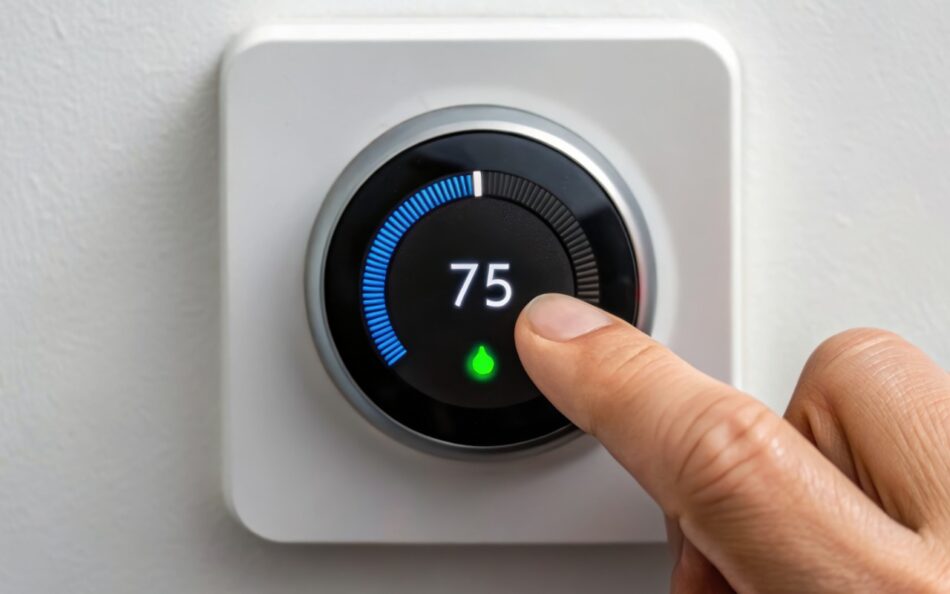Florida AC Preparation: How to Get Ready for a Heatwave

When a Florida heatwave is approaching, your air conditioner becomes your most valuable home appliance. Unfortunately, it’s also the most vulnerable. Many AC systems fail during the first few days of a major heat surge, not because they’re poorly made, but because they weren’t prepared for sustained high temperatures and longer run times. Taking the right steps ahead of time ensures your system can keep you cool without unexpected breakdowns or energy spikes. In this guide to Florida AC preparation, we’ll walk you through what needs to be done to keep your home safe, efficient, and comfortable when the heat index soars.
Start with a Full System Inspection
Before temperatures rise into the triple digits, take time to visually inspect your system. Look at the outdoor condenser unit and make sure it’s free of leaves, vines, dirt, or lawn debris. Even partial blockages can reduce airflow and make your system work harder than necessary. Check the insulation on your refrigerant lines for cracks or wear. If the foam is fraying or missing, your system could be losing cooling capacity. Inside your home, listen for unusual noises during startup. Grinding, clicking, or hissing sounds may indicate a problem with the blower motor, compressor, or electrical components.
While a basic inspection is helpful, it’s not a substitute for professional maintenance. Florida AC preparation should include a licensed technician checking refrigerant levels, cleaning the evaporator coil, and testing electrical connections to ensure everything is ready for continuous high-demand performance.
Replace Your Air Filter
One of the easiest and most overlooked ways to prep your AC for a Florida heatwave is to change the air filter. A dirty filter can restrict airflow, reduce cooling efficiency, and even cause ice buildup on the evaporator coil. When your system is running nonstop during a heatwave, this kind of strain can push it to the point of failure. Check your filter now, even if you think it was replaced recently. During peak summer months, many Florida homes benefit from replacing their filters every 30 days, especially if you have pets, allergies, or live in a high-pollen area.
Adjust Your Thermostat Settings Strategically
It might seem logical to crank the AC as low as it will go when a heatwave hits, but that tactic can backfire. Running your system at full throttle all day increases the risk of short cycling, higher electric bills, and potential failure. Instead, aim for consistent and manageable cooling. Program your thermostat to hold a steady temperature that balances comfort and efficiency, typically around 75 to 78 degrees during the day. If you have a smart thermostat, set schedules that match your household’s daily routine, and use eco modes during low-use periods like late night or early morning hours.
Consistent temperature control reduces system strain, prevents humidity buildup, and extends the lifespan of your equipment.
Seal Air Leaks and Improve Airflow
Your AC system can only perform as well as your home allows it to. If cool air is escaping or warm air is sneaking in, your system will be fighting an uphill battle. Walk through your home and check for gaps around windows, poorly sealed doors, or attic drafts. Use weather stripping or caulk to seal obvious leaks, and make sure ceiling fans are rotating counterclockwise to push cool air downward.
Also take a moment to open your interior doors and clear any obstructions near supply or return vents. Furniture, rugs, or clutter that blocks airflow can cause temperature imbalances and inefficient cooling, especially in bedrooms or closed-off areas.
Consider Preventive Upgrades
If your AC is over 10 years old or has already needed multiple repairs, a heatwave can push it past its breaking point. Florida AC preparation is not only about surviving the next heatwave—it’s also about planning for the long term. Ask your HVAC technician whether your current unit is sized correctly for your home, or if there are ways to boost efficiency with zoning, duct upgrades, or a variable speed system. Even small changes, like adding a whole-home dehumidifier or improving attic insulation, can make your AC work smarter instead of harder.
In newer homes, make sure your smart thermostat and HVAC zoning systems are updated and properly synced. These technologies can help you save on cooling costs while maintaining stable indoor temperatures during extreme weather.
Final Check: Prepare for the Unexpected
Even with the best preparation, the Florida heat is unpredictable. Have a plan in place in case your AC does stop working. Know who to call for 24-hour emergency repairs, and make sure your system’s warranty or maintenance agreement is current. Keep portable fans, blackout curtains, and plenty of drinking water available. If you have family members who are elderly, chronically ill, or heat-sensitive, it’s worth considering a temporary backup cooling option like a window unit for emergencies.
Florida AC preparation isn’t just about comfort—it’s about safety. A working air conditioner in extreme heat is a vital part of your home’s resilience and your family’s wellbeing.
Count on Cusano Air Conditioning for Reliable Cooling
At Cusano Air Conditioning, we’ve helped South Florida families prepare their systems for Florida’s toughest summers for over a decade. Whether you need a tune-up, filter change, thermostat upgrade, or emergency backup advice, our team has the tools and experience to keep you cool when it matters most. Call us today!
Call 954-472-8002 today or email cusanoair@yahoo.com to schedule your pre-heatwave AC check and enjoy the peace of mind that comes with a system that’s ready to perform.